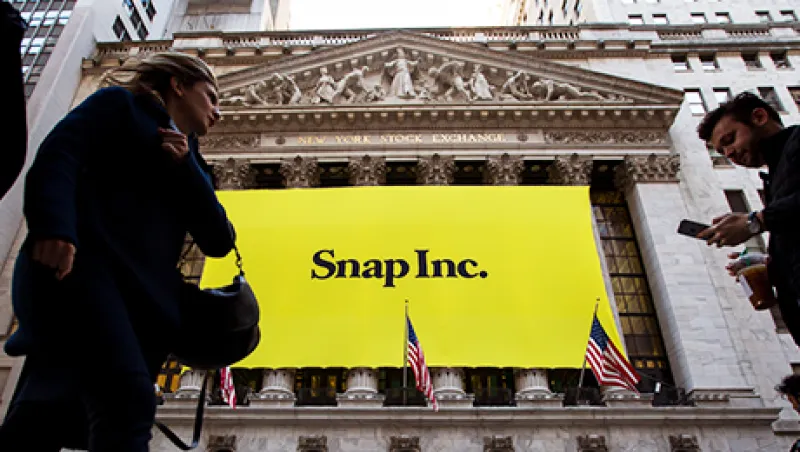Index-fund giant State Street Global Advisors is blasting Snap’s decision to go public with shares that have no voting rights.
Snap, the parent of the popular Snapchat social media platform, raised $3.4 billion in an initial public offering on the New York Stock Exchange in March.
“Voting is a basic principle of shareholder rights,” Lynn Blake, chief investment officer of global equity beta solutions at SSGA, said in a phone interview. “The idea that Snap’s decision could set a precedent for future IPOs is really concerning.”
There’s been a rise in the number of companies limiting voting rights over the last few years, but Snap is the first to make all publicly available shares non-voting, Blake said. According to SSGA, the weight of companies with non-voting shares has risen to 12 percent of the Standard & Poor’s 500 index, from 5 percent in 2007.
SSGA’s criticism of Snap stands out because index-fund managers, which can invest in thousands of companies based on benchmarks, have historically avoided getting into the governance details of any one company.
“We’re concerned that companies will only be willing to engage with us to the extent that we can lodge a vote,” she said. “With partial or no voting rights, is that really a public company?”
Shareholders, by definition, are partial owners of a company who should have influence over their economic interest, according to Blake. Shareholder voting rights are particularly important for index managers as they generally have no other way to influence a company, she said, as passive managers can’t sell shares.
Companies are limiting shareholder rights in part to fend off the growing number of activist investors, Blake said. SSGA wants U.S. stock exchanges to change their rules to prevent companies from listing if they limit voting rights. While index providers like MSCI, FTSE and S&P could also play a role by excluding such companies from benchmarks, Blake says regulators could likely help the most by introducing rules on listing standards.
“That could solve the issue at the beginning of the problem,” she said. SSGA can exclude certain companies from its funds, she added, but that’s only a short-term solution and “we would like to see the problem fixed.”







